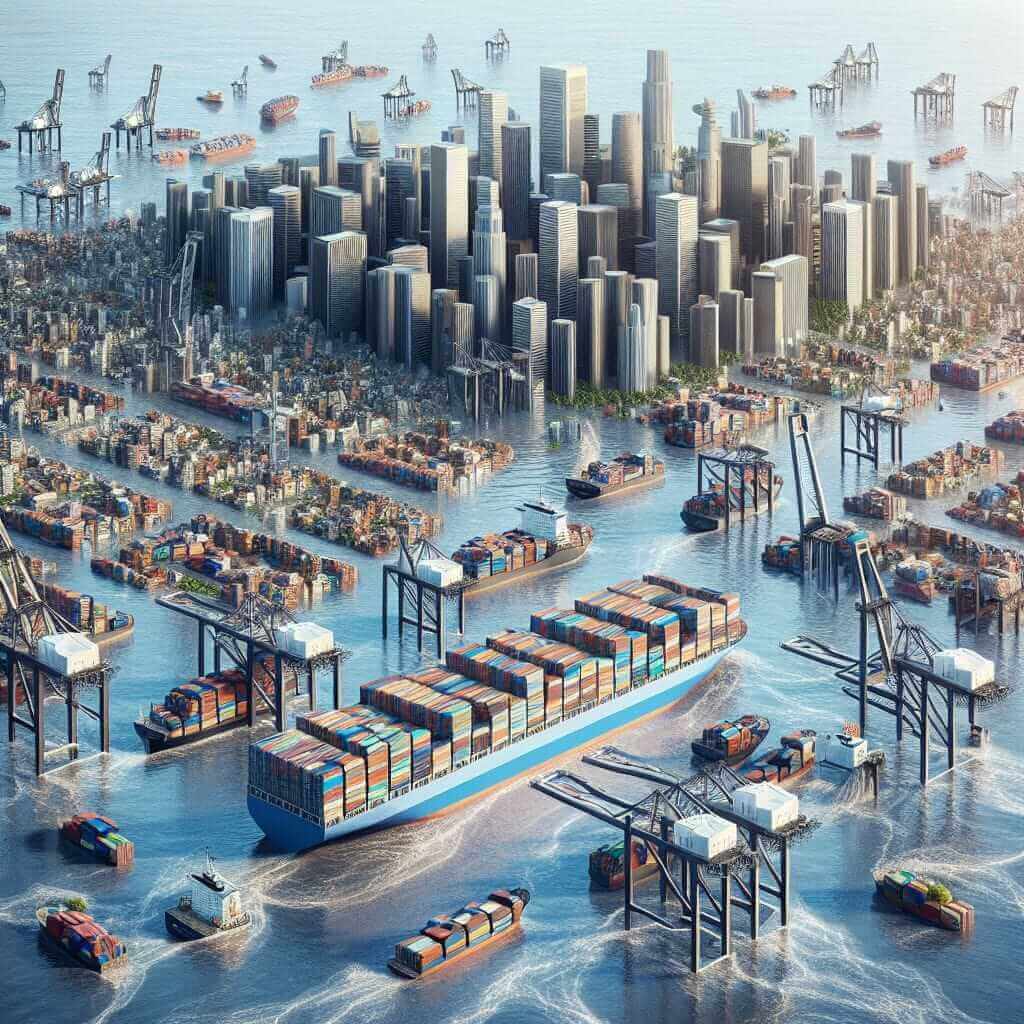The Reading section of the IELTS exam is designed to assess a candidate’s ability to understand and interpret academic texts. One of the recurring themes in recent years has been the impact of climate change on various aspects of human life, including global supply chains. This topic is not only timely but also highly relevant, given the growing concerns over environmental sustainability and economic stability. Understanding this subject can provide valuable insights and prepare you for similar topics in the IELTS Reading exam.
Main Content
1. Reading Passage on “How is Climate Change Affecting Global Supply Chains?”
Context: Medium Text Difficulty
The impact of climate change on global supply chains is becoming increasingly evident. As extreme weather events such as hurricanes, floods, and wildfires become more frequent, the interconnectedness of our global economy means that disruptions in one part of the world can have far-reaching consequences. For instance, heavy rainfall in Southeast Asia, a key region for electronics manufacturing, can lead to factory shutdowns, delaying the production and shipment of goods worldwide.
Moreover, rising sea levels threaten major ports that are crucial hubs in international trade. Port cities like Shanghai, Rotterdam, and Los Angeles are at significant risk of being inundated, which would severely disrupt the flow of goods. The agricultural sector is also not immune; changes in precipitation patterns and temperature fluctuations can damage crops, leading to food shortages and increased prices.
Companies are increasingly aware of these risks and are taking steps to mitigate them. Some are diversifying their supply sources to avoid reliance on any single region. Others are investing in more resilient infrastructure, such as elevated warehouses and more robust transportation networks. However, these measures often come at a high cost, which can ultimately be passed on to consumers.
Climate change is forcing businesses to rethink their supply chain strategies. While the immediate focus is on mitigating risks, the longer-term challenge lies in adapting to a new normal where climate-related disruptions are part and parcel of global trade.
2. Questions
Type: Multiple Choice, True/False/Not Given, Summary Completion
- Multiple Choice:
- According to the passage, which region is a key area for electronics manufacturing?
- Europe
- Southeast Asia
- North America
- South America
- According to the passage, which region is a key area for electronics manufacturing?
True/False/Not Given:
- Rising sea levels could impact port cities crucial to international trade.
- The text implies that all companies are taking steps to mitigate climate change risks.
Summary Completion:
Climate change poses significant challenges to global supply chains. Extreme weather events, such as hurricanes and ___, are becoming more common, causing significant disruptions. Rising sea levels threaten major _, leading to potential delays in international trade. Companies are adopting strategies to ___ these risks, including diversifying supply sources and investing in resilient infrastructure.
3. Answer Key & Explanations
-
Multiple Choice Answer: 2. Southeast Asia
- Explanation: The passage specifically mentions Southeast Asia as a key region for electronics manufacturing.
-
True/False/Not Given:
- TRUE: Rising sea levels could impact port cities crucial to international trade.
- NOT GIVEN: The text implies that all companies are taking steps to mitigate climate change risks. (The text notes that “companies are increasingly aware,” but it does not state that all companies are taking actions.)
-
Summary Completion Answers:
- hurricanes
- ports
- mitigate
Entry Explanations:
- Hurricanes: The passage mentions various extreme weather events, and hurricanes are examples of such.
- Ports: Rising sea levels threating major ports is discussed in the passage.
- Mitigate: Companies taking steps to mitigate these risks is a key point in the text.
4. Common Mistakes
- Misinterpreting Details: Students often misread key details or infer information not explicitly stated in the passage.
- Missing Keywords: Overlooking important keywords in the questions and the passage.
- Overthinking T/F/NG: Confusing ‘Not Given’ with ‘False’ due to overthinking.
5. Vocabulary
- Inundated (adj.) – /ɪˈnʌndeɪtɪd/ – Flooded, overwhelmed.
- Resilient (adj.) – /rɪˈzɪliənt/ – Able to recover quickly from difficult conditions.
- Diversifying (verb) – /daɪˈvɜːsɪfaɪɪŋ/ – Making or becoming more varied.
- Mitigate (verb) – /ˈmɪtɪɡeɪt/ – Make less severe, serious, or painful.
6. Grammar Focus
- Present Participle Phrases: Used to show simultaneous action or cause and effect. Example: “Rising sea levels threaten major ports, leading to potential delays.”
- Relative Clauses: Add extra information about a noun. Example: “Ports that are crucial hubs in international trade.”
Advice for Achieving a High Reading Score
- Practice Regularly: Regular practice with different types of passages and question formats is essential.
- Enhance Vocabulary: Focus on improving your academic vocabulary, as this will help in understanding passages better.
- Time Management: Practice completing reading sections within the allocated time to improve speed and efficiency.
- Critical Reading: Develop the skill of identifying key information and differentiating between facts and inferences.

By following these guidelines and preparing thoroughly, you can significantly improve your Reading score in the IELTS exam.